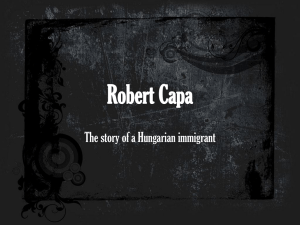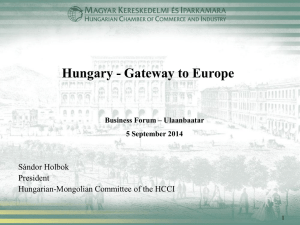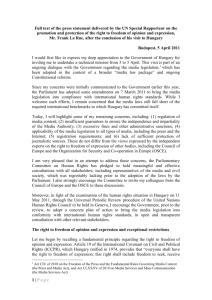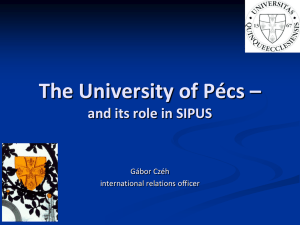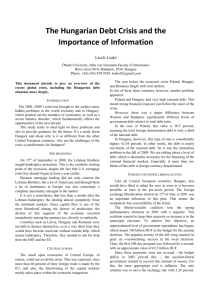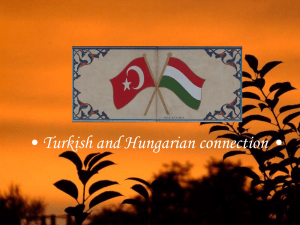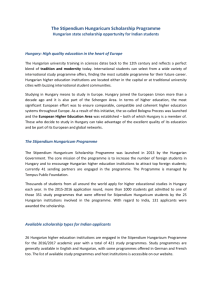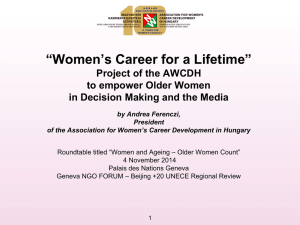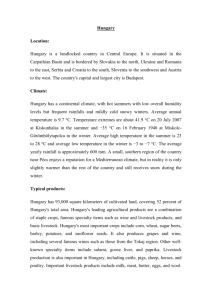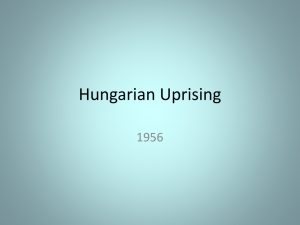Social exclusion of immigrants in Hungary
advertisement
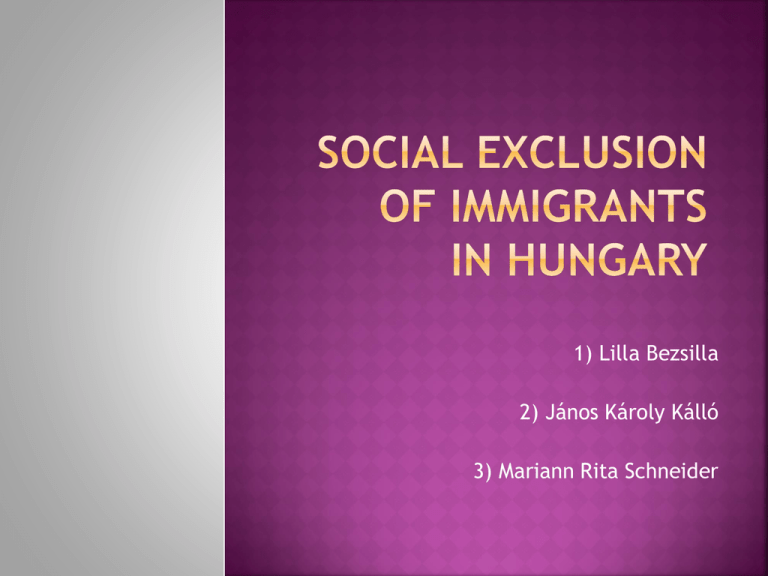
1) Lilla Bezsilla 2) János Károly Kálló 3) Mariann Rita Schneider According to the Office of Immigration and Nationality in August 2011 more than around 220,000 foreigners were living in Hungary with a residence permit for more than 3 months. The Hungarian population’s 1.7% are immigrants which is considered to be a low ratio compared to western European countries where this stands around 8% (in Austria and Germany). When we talk about the emigrants living in Hungary according to the nationality we should remark that some of them coming from the surrounding countries are those who lived on the territories which were redistributed. Those of who have immigration permit come in 43.9% of the cases from Romania, 11.7% from the former Yugoslavia, 8.2% from Ukraine, 7.9% from China 4.2% from the former Soviet Union and 24.1% from other countries like Vietnam, Turkey, Germany, France, Austria, Great-Britain, Slovakia, Israel, Iran and USA. The main objectives are earning money, studying (mainly in higher education), living together with the family, official purposes. School enrollment benefit: If a child with refugee status goes to elementary school, secondary school, secondary trade school or other specialized secondary school can apply for this support. The maximum period for applying for this support is between the first grade of elementary school until the completion of the last grade in secondary school (8+4 or 5 years). Refugees are entitled to the health care services that Hungarian citizens can receive, with the same conditions as for Hungarian citizens All recognized refugees – whether adults, children or babies – may apply for this allowance to be able to overcome easier to initially difficulties of the integration to the society The amount of the allowance in 2006 was: Adults: HUF 40,000 (138 Euro) Children below the age of 18: HUF 30,000 (103 Euro) The aim of the fundation is to help for the nation to get closer to the European values after the joining of the EU. Help to the organizations to get stronger and protect and support the new ideas and programs. The fundation is focusing of the open communication, the efficient ways of information flow and information changing. The Jövőkerék Fundation helps to civil organizations to complete projects from the ideas. The ways of using the money of the Fundation is through: tenders, scholarships, supportings, buying new assets, earning new assets. The Jövőkerék Fundation is offering courses and places for volunteers. On the website we can find informations about the imigrant situation in Hungary. We can play a quiz, which brings up very interesting questions and we can watch short films about imigrants as well. An intergovernmental organization established in 1951, IOM is committed to the principle that humane and orderly migration benefits migrants and society. With 146 member states, a further 98 observers including 13 States and 85 global and regional IGOs and NGOs and and more than 440 countries, IOM is dedicated to promoting humane and orderly migration for the benefit of all. It does so by providing services and advice to governments and migrants. If you have any questions do not hesitate to ask us.
